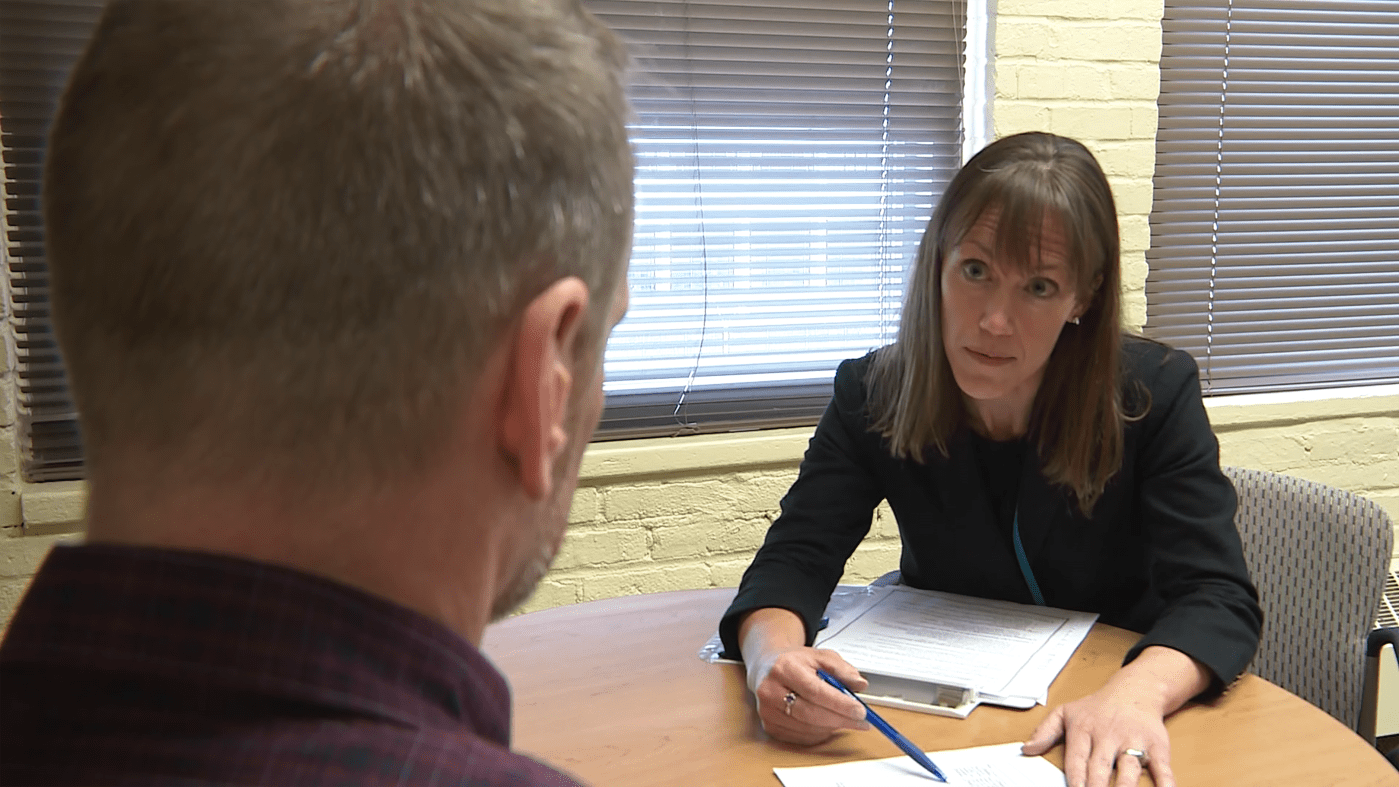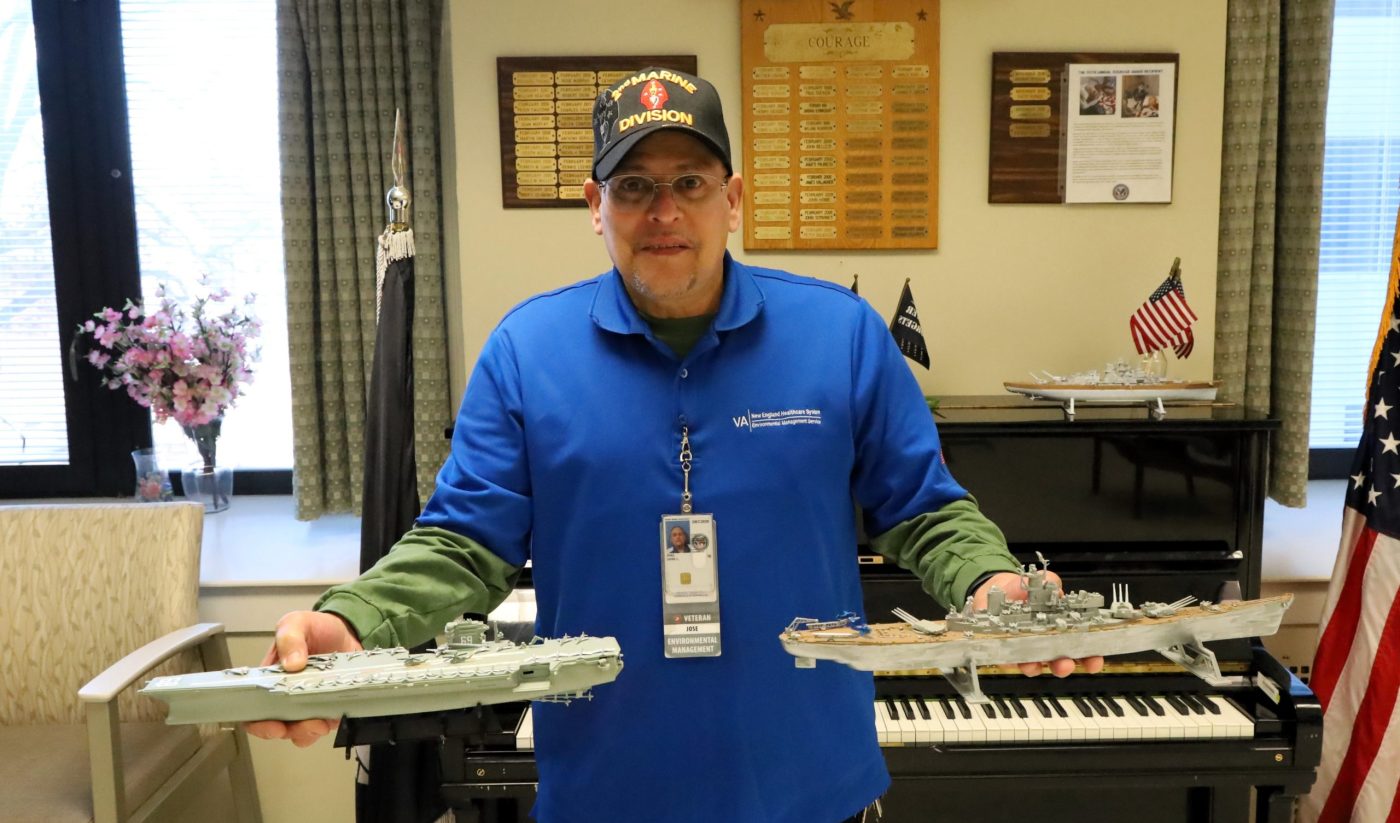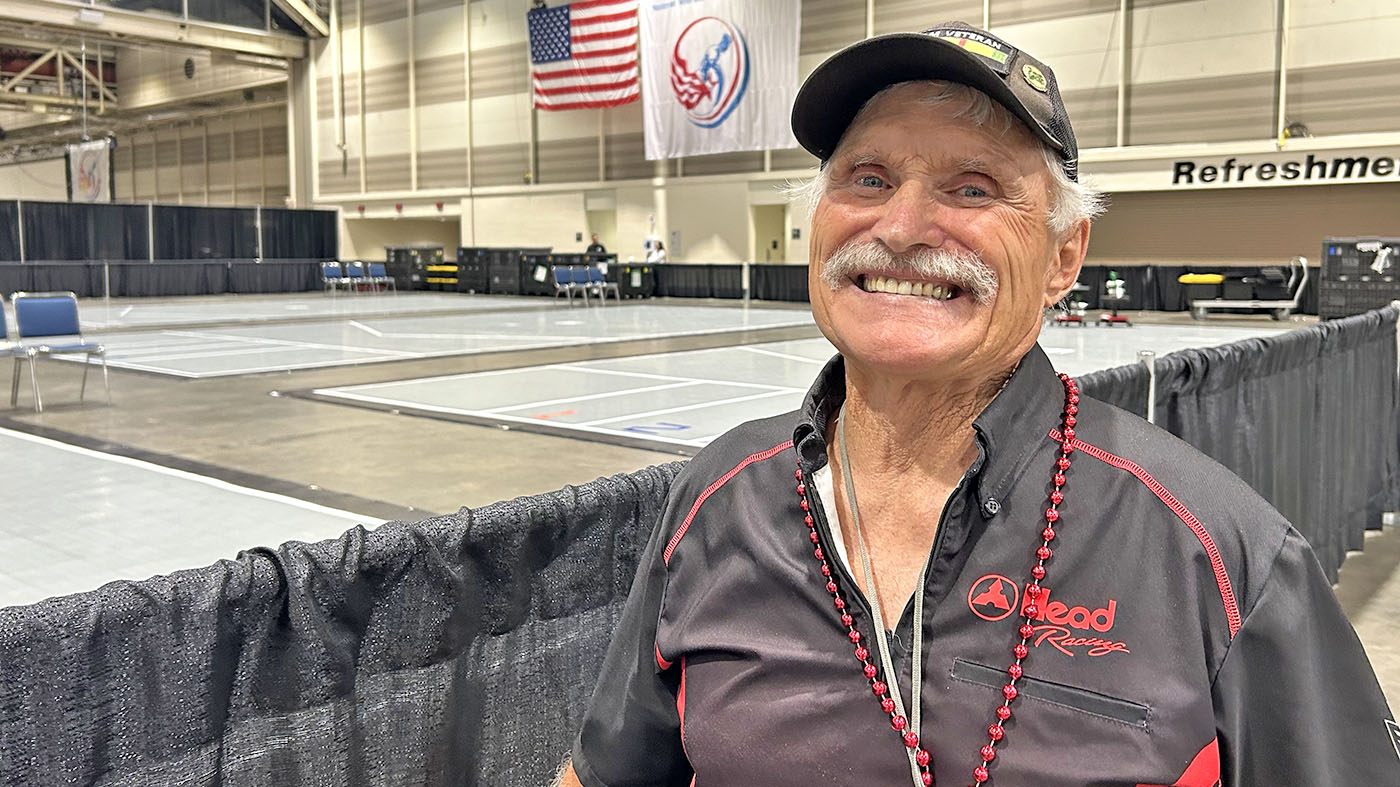Cognitive processing therapy and prolonged exposure are the two leading trauma-focused cognitive behavioral psychotherapies used for VA patients with PTSD.
Research has shown that both treatments are effective with Veterans and non-Veterans. However, researchers had never compared the two treatments head-to-head in a military Veteran population to learn which one is more effective.
Until now.
In the first paper to compare the two psychotherapies among Veterans, a VA study of more than 900 Veterans with PTSD found prolonged exposure to be statistically more effective than cognitive processing therapy in easing PTSD symptoms. But the difference was not clinically significant, with most of the Veterans showing meaningful improvement from both treatments. The researchers recommended shared decision-making between clinicians and patients to help patients understand the evidence and select their preferred treatment.
Largest PTSD psychotherapy study
Dr. Paula Schnurr, executive director of VA’s National Center for PTSD, was the lead author of the study, which was also the largest PTSD psychotherapy study to date in any population in the total number of participants: 916. The findings appeared in “JAMA Network Open” on Jan. 19, 2022.
Schnurr explains that deciding which psychotherapy to use should occur as part of a provider-patient consultation. “Shared decision-making is a process of collaboration between a patient and provider aimed at helping the patient choose a preferred treatment,” she says. “It involves giving a patient evidence-based information about treatment options, effectiveness, and benefits and risks, and helping them clarify their goals and preferences in order to select their preferred treatment.”
Dr. Kate Chard of VA Cincinnati and Dr. Joe Ruzek, former head of the National Center for PTSD’s Dissemination and Training Division, co-led the study, which was supported by the VA Cooperative Studies Program.
Psychotherapies are widely available in VA
The two psychotherapies at the center of the study take different approaches.
Prolonged exposure helps people with PTSD gradually approach trauma-related memories, feelings and situations that they have been avoiding since their trauma. Patients are asked to repeatedly recall and describe out loud the details of their traumatic experience. By confronting these challenges, patients can decrease their PTSD symptoms. Between sessions, they listen to a recording of themselves describing their traumatic moments.
Cognitive processing therapy helps people with PTSD evaluate the upsetting thoughts that have existed since the trauma, with a focus on changing the way they look at themselves and the world. Therapists teach skills that help patients decide whether there are better ways to think about trauma. Patients are taught to challenge their trauma-related beliefs through critical thinking and the use of daily worksheets.
Unlike much of the mainstream health care sector, prolonged exposure and cognitive processing therapy are widely available in VA because the agency launched a national training program in 2006 requiring all VA medical centers to offer them to patients. The two therapies are included in a broader training that covers 17 evidence-based psychotherapies for mental disorders.
Understanding the complex nature of posttraumatic stress disorder, commonly known as PTSD, is one of VA’s most pressing challenges. The agency says many Veterans who fought in Vietnam, the Gulf War, and the post-9/11 conflicts in Iraq and Afghanistan have had that mental health condition sometime in their lives.
More Information
Click here to read the full story.
Click here to learn more about VA research.
Topics in this story
More Stories
Army and Marine Corps Veteran started making models after being hospitalized at Connecticut VA.
Veteran Hank Ebert is a bit of a superstar in the National Veterans Wheelchair Games. He has been attending since 1993.
Embrace simplicity and balance during the holiday frenzy! Discover the beauty of self-care and a nourishing meal in this week's #LiveWholeHealth practice.







If these therapies are so widely available, please explain to me why I’ve been paying out-of-pocket for a civilian therapist since May 2021 because I’m still on your wait list for a therapist? Especially since I’m 100% service connected, with a service dog, and was recently Baker Acted. These articles look awesome for PR, but we all know you’re liars.
Studies are nice. But if your are recieving treatment, and you have to redo everything you started because you doctor leaves, the stress and pain gets worst.My best meds are my Cats. Dark rooms and staying stress free. Plus VA does not do non combat vets very well we dont fit there scoop of helping
But they try.
I have done CPT and PET. Prolonged Exposure Therapy was a living nightmare. Never, ever again. CPT was difficult, but manageable. I will never suggest PET to anyone with PTSD, especially with suicidal ideation. Some ghosts are best left alone,
This is ridiculous and like others have commented they can do all the research in the world but if they are not the one who went through the trauma they can’t configure everyone’s healing into one or two or any particular threshold for that matter. STOP FOREAL
I’m sorry but unless these clinicians have actually ‘walked a mile’ in our PTSD SHOES…meaning you have actually gone thru exactly what we have, they cannot say they are effective at all. I jump at the chance to stop having to deal with PTSD period. But I can tell you, I will not partake in these psychotherapies, I have attempted to and I crashed mentally, to the point of being suicidal and going back to drugs again. The goal is to get better and lead a positive and productive life, not regress.(if I worded that right) I saw something about surgery, for epilepsy, that helped someone with their PTSD (not intentionally) maybe that should be seriously looked studied. Because I would definitely consider it. That’s how desperate I am to live a halfway normal life.